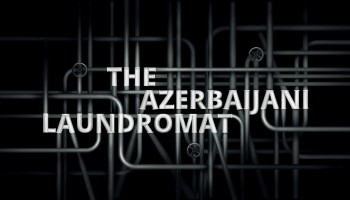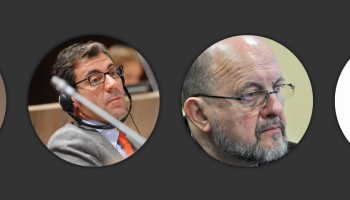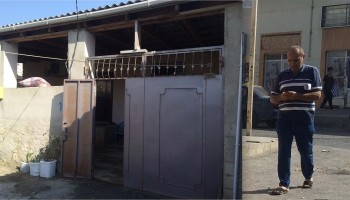Eduard Lintner received €819,500 ($1,093,307) from Polux Management, Metastar Invest, and Hilux Services between 2012 and 2014 for services and for machines.
Lintner is a former German politician who belongs to the Christian Social Union (CSU) party in Bavaria, a member of the country’s governing coalition. Between 1999 and 2010, he was a member of the Parliamentary Assembly of the Council of Europe (PACE) who, at times, served on committees responsible for evaluating members’ human rights records.
According to a 2012 article in Der Spiegel, Lintner said that one of the reasons he left was because “a group within the Council of Europe… wanted to rigorously denounce [Azerbaijan’s] alleged human rights violations.” He said he preferred to “usher (Azerbaijan) along in a supportive way.”
Two weeks before he got the Polux payment, Lintner had been in Azerbaijan, heading a team of German observers who were monitoring the country’s presidential election. Despite the election’s being widely considered to have fallen short of international standards, Lintner said his team found no irregularities in the process and praised it as meeting German standards.
He said the payments were funding for the Society for the Promotion of German-Azerbaijani Relations (GEFDAB), a Berlin-based organization he founded in 2009. He said the money came from the Association for Civil Society Development in Azerbaijan (ACSDA), a Baku-based NGO run by Elkhan Suleymanov, an Azerbaijani parliamentarian and PACE member.
Lintner told OCCRP’s partner, Suddeutsche Zeitung, that GEFDAB needed the money to cover office costs in the government district, phone bills, events “around the Parliament,” and two temporary employees that he would not name. “We kept what was left, it was a quasi-budget,” he said.
Regarding his 2013 election monitoring, he said: “It’s not important who pays, it’s important what rules the observation follows … The OSCE always comes to different results, because they take long-term observations into account. We only observed the election day and the ballot-counting process.”






